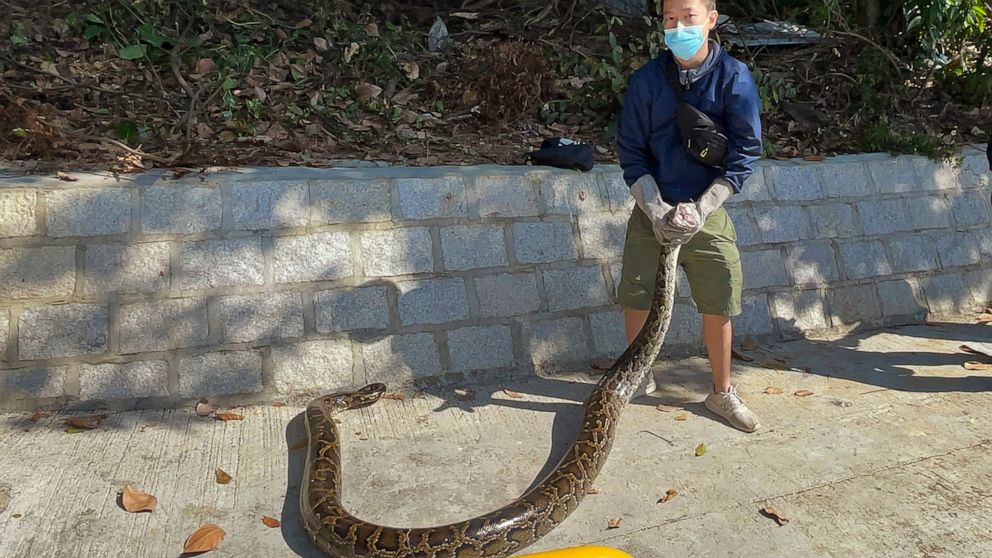Hong Kong is home to a variety of snakes, from the venomous king cobra to larger species such as the Burmese python
HONG KONG – Hong Kong is home to a variety of snakes – from the venomous king cobra to larger species, such as the Burmese python. Whenever one of these reptiles is spotted sliding into a house or approaching a residential area, Ken Lee is among the snake hunters called to capture the creatures.
But unlike the commercial snake collectors of old, whose catch is usually served as soup in the city’s snake shops, Lee does not sell the snakes he catches. He is part of a new breed of snake hunters who strive to free reptiles back to nature.
“There are times when people catch snakes before I get there, but unfortunately some of them have been killed or mortally wounded,” said Lee, 31, who is one of the youngest registered snake hunters in Hong Kong. “Some people took the snakes bravely, but in fact it caused damage to wildlife.”
Like many other snake hunters in the city, Lee is self-taught. He started dealing with snakes at age 17, when he worked as an apprentice at a snake shop in Hong Kong. His experience spurred him to learn more about biodiversity and biology, and he ended up studying it at a university in Taiwan.
When Lee catches snakes, he uses a variety of equipment – puncture-proof gloves, sticks, hooks, a torch and bags. Sometimes, he even uses his own hands.
In early December, he made headlines by successfully capturing a 3-meter-long Burmese python in a village in rural Hong Kong. In the same month, Lee was also called to a residential skyscraper in a rural area to capture a bamboo viper – a common poisonous green snake whose bite can cause an unpleasant swelling.
The snakes he captures are sent to Kadoorie Farm and Botanical Gardens, a local non-profit organization that houses rescued wild animals. After a health check, most creatures are then returned to the local parks.
“I hope all of these wild animals can return to nature,” said Lee.
He currently works as a research assistant at four universities in the city and is a volunteer at the Hong Kong Herpetology Society Foundation, a non-profit organization dedicated to the study of reptiles and amphibians.
Although Hong Kong has extensive green areas that serve as different habitats for snakes, Liz Rose-Jeffreys, conservation officer at the Kadoorie Farm, believes that the city’s urban development may threaten the survival of snake species.
“I think this is a mutual respect, really. They are our wild neighbors, they have been here a lot longer than us and I think we have a duty to respect nature, ”she said. “They are an important part of our ecosystem, so if we have to remove the snakes, it will affect the balance that has been established for many years.”
